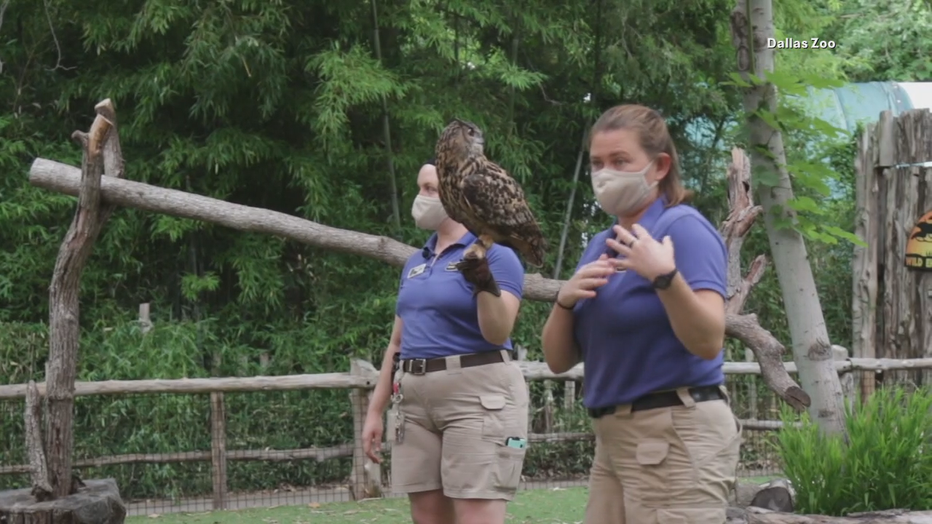Five Dallas Zoo gorillas test positive for COVID-19
Five Dallas Zoo gorillas test positive for COVID-19
When doctors say anyone can be infected with the coronavirus, that also includes animals. This week, the Dallas Zoo announced five of its gorillas recently tested positive. They are the first positive cases since the pandemic started.
DALLAS - Five gorillas that tested positive for COVID-19 at the Dallas Zoo are not being isolated from the rest of their group.
It's still unclear how they caught the virus since their habitat is too far from guests and workers are masked and tested every day.
This is the first time an animal at the Dallas Zoo tested positive for COVID. Luckily, the five infected gorillas are showing no symptoms.
Dallas Zoo: Recent giraffe deaths not connected
When doctors say anyone can be infected with the coronavirus, that also includes animals.
This week, the Dallas Zoo announced five of its gorillas recently tested positive. They are the first positive cases since the pandemic started.
Harrison Edell is the Executive Vice President for Animal Care at the Dallas Zoo.
"Last week, we took some fecal samples from the gorilla barn. Those fecal samples indicated that five of our gorillas that live here in Dallas who are COVID positive," he explained.
RELATED: Dallas Zoo names twin tiger cubs after conservation heroes
5 Dallas Zoo gorillas test positive for COVID-19
The Dallas zoo is dealing with an outbreak of COVID-19 among the gorillas. Good Day talked to Harrison Edell, an animal care expert at the zoo, about how the gorillas were infected and what zookeepers are doing to protect the rest of the animals.
The gorillas are in two groups. One group is a family of adults and offspring. The other is a group of bachelors. Gorillas in both groups tested positive.
But unlike when humans test positive for COVID and have to isolate, that is not what is being done at the zoo.
"From an animal welfare perspective, these are social animals. So we're going to do everything we can to keep them together intact," Edell said. "Social groups, the family group is still together. The bachelor group is still together, and we continue to treat all of the animals the same."
Dallas Zoo makes changes to its mask policy
Edell says great apes and big cats have been two species that are more prone to catching the virus.
Workers that interact with the animals are tested weekly and wear masks and other PPE when interacting with animals.

Some of the animals at the zoo have regular training interactions with staff and are able to use a swab to also test for COVID.
Zoo officials do not believe transmission happened from visitors at the zoo.
"Our guests and our gorillas are not close enough together that we think anybody was at risk of transmitting COVID that way," Edell said. "It's possible it came from a staff member that was asymptomatic. It's possible it came in some other way. But that's kind of where we are at this point."
Big cats are prone to getting COVID-19. The Dallas Zoo has two tiger cubs that they are closely watching.

